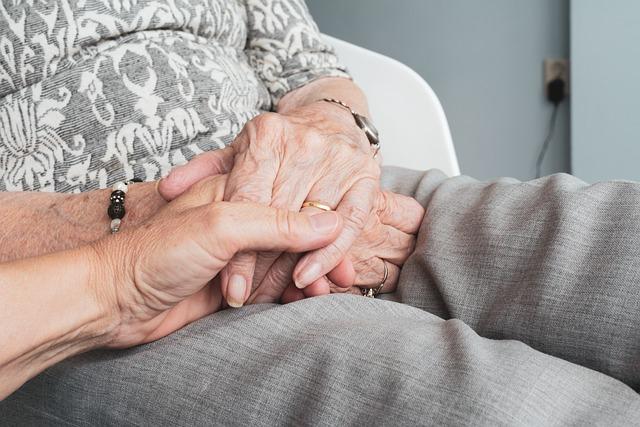In the tapestry of life, where each thread represents a unique journey, the golden strands of our seniors hold stories of resilience, wisdom, and a lifetime of contributions. Yet, as time weaves on, these cherished narratives are often overshadowed by challenges that threaten their dignity and rights. In a world bustling with progress and innovation, the voices of our elders can sometimes be drowned out, leaving their needs unmet and their rights overlooked. This is where the power of advocacy steps in, serving as a beacon of hope and a rallying cry for justice. Advocacy for senior rights is not just a noble pursuit; it is a necessary movement to ensure that the final chapters of our elders’ lives are written with respect, care, and empowerment. Through collective action and compassionate voices, we can illuminate the path towards a society where every senior is heard, valued, and protected. Join us as we explore why advocacy matters for safeguarding the rights of those who have paved the way for us, and how we can all become champions for change in the lives of our senior citizens.
Championing Dignity Understanding the Crucial Role of Advocacy in Upholding Senior Rights
In an ever-evolving society, where the pace of life accelerates and technology often leaves the older generation trailing, advocacy stands as a beacon of hope for seniors. It is more than just a voice; it is a movement to ensure that the rights of our elders are not only recognized but respected. The importance of advocacy lies in its ability to illuminate issues that might otherwise remain in the shadows, bringing to light the challenges seniors face and fighting for their rightful place in the community. Advocacy is the catalyst for change, transforming passive acknowledgment into active empowerment.
Through dedicated efforts, advocates strive to create a world where seniors are treated with dignity and respect. Their work encompasses:
- Promoting awareness of ageism and discrimination, ensuring that these issues are addressed at both the grassroots and policy levels.
- Facilitating access to essential services such as healthcare, legal aid, and social support, which are critical for the well-being of seniors.
- Empowering seniors to voice their concerns and participate actively in decisions affecting their lives.
- Fostering inclusive communities where seniors are valued and integrated rather than isolated.
Advocacy is the shield that protects the rights of seniors, paving the way for a society where everyone can age with dignity and grace.

Empowering Voices How Advocacy Amplifies the Concerns and Needs of the Elderly
In a world that often overlooks the subtle yet profound voices of our elderly population, advocacy acts as a powerful megaphone, ensuring their concerns and needs are heard and addressed. Through the dedicated efforts of advocates, the challenges faced by seniors are brought into the spotlight, influencing policy changes and societal attitudes. This transformation is crucial, as it ensures that the elderly are not just passive recipients of care but active participants in the discourse surrounding their well-being.
- Awareness: Advocacy raises awareness about issues such as elder abuse, healthcare access, and age discrimination, encouraging communities to take action.
- Representation: It provides a platform for seniors to express their needs and preferences, ensuring their voices are included in decision-making processes.
- Empowerment: By amplifying their voices, advocacy empowers the elderly, fostering a sense of agency and dignity.
Through these efforts, advocacy not only protects senior rights but also enriches our society by valuing the wisdom and experience that the elderly bring to our communities.

Bridging the Gap Strategies for Effective Advocacy in Protecting Senior Rights
In the quest to safeguard the rights of seniors, effective advocacy serves as a powerful tool to bridge existing gaps. Advocates can employ a variety of strategies to ensure that the voices of older adults are heard and respected. These strategies often include:
- Community Engagement: By fostering relationships within local communities, advocates can create networks of support that amplify senior voices and address their specific needs.
- Policy Influence: Engaging with policymakers to push for legislation that protects and enhances senior rights is crucial. Advocates can present data, share personal stories, and collaborate with other organizations to effect change.
- Education and Awareness: Raising awareness about senior issues through workshops, seminars, and social media campaigns can educate the public and dismantle stereotypes, ensuring a more informed and empathetic society.
By leveraging these strategies, advocates play a pivotal role in not only protecting but also empowering seniors, ensuring they enjoy the dignity and respect they deserve in their golden years.
Guiding the Way Practical Recommendations for Advocates to Enhance Senior Well-being
Advocates play a crucial role in enhancing the well-being of seniors by ensuring their rights are protected and their voices heard. To effectively champion the cause, it’s essential to adopt strategies that are both empathetic and practical. Building relationships with local senior communities can foster trust and open channels for communication. This allows advocates to better understand the specific needs and challenges faced by seniors in their area. Furthermore, staying informed about the latest policies and legal changes affecting senior rights ensures that advocates are well-prepared to provide accurate guidance and support.
Another key recommendation is to organize educational workshops that empower seniors with knowledge about their rights and available resources. This not only boosts their confidence but also encourages self-advocacy. Additionally, creating collaborative networks with healthcare providers, legal experts, and social workers can offer a holistic approach to addressing the multifaceted issues seniors encounter. By leveraging these networks, advocates can provide comprehensive support that extends beyond just legal advice, encompassing emotional and practical assistance as well.


